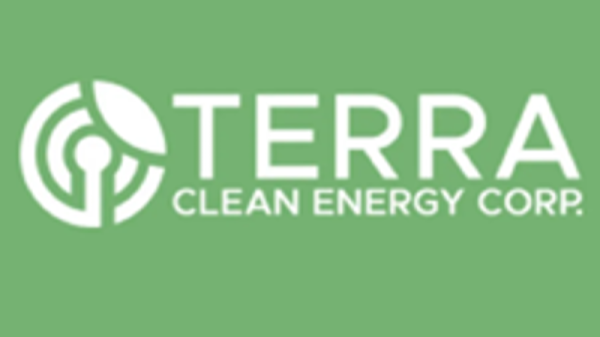Anonymous cryptocurrency exchange – is it real or fake?
Key Takeaways:
Privacy coins like Monero and Zcash improve transaction privacy and security, meeting the growing need for privacy in crypto.
Anonymous exchanges facilitate private trades, safeguarding user privacy and financial autonomy amidst heightened government oversight.
Platforms like Swapzone offer seamless and anonymous crypto conversion, placing user privacy and security at the forefront.
Government rules clarify but may invade user privacy, showing the importance of privacy in the crypto industry.
Have you ever pondered the existence of anonymous cryptocurrency exchanges? Are they a reality or merely another online speculation in the crypto community?
With increasing government scrutiny, the demand for anonymous cryptocurrencies has surged. This led to the development of privacy coins like Monero (XMR) and Zcash (ZEC) to bolster privacy.
This study will explore how anonymous exchanges help keep online transactions private and protect anonymity.
Shall we explore further into the realm of crypto pseudo-privacy?
Understanding the Semi-Anonymity of Bitcoin Network
Bitcoin records transactions on the blockchain without personal information, offering some privacy. Users employ alphanumeric addresses instead of real-world names, enhancing privacy to a degree.
However, crypto trades publicly record fiat currency conversions, IP addresses, and transaction amounts, enabling tracing.
This partial privacy has led to the development of more private cryptos like Monero and Zcash. Understanding privacy and regulations in the crypto realm is crucial for Bitcoin users to navigate effectively.
How to Convert Cryptocurrency Privately?
When doing anonymous transactions, follow the KYC process and AML rules to keep transactions safe and legal.
This entails providing personal information and verifying identities to deter fraud and money laundering.
By following these procedures, traders can safeguard themselves and meet their legal obligations. Despite the obstacles, reliable solutions prioritize privacy while upholding legality and security.
How to uphold privacy nowadays?
How to maintain privacy? Look for platforms with minimal or no ID verification during conversion. These sites use strong encryption to secure user data. Choosing a low-fee platform is crucial for getting good deals and protecting privacy.
Pirate Chain is a secure digital asset that uses Komodo, Zcash, and Monero technology for privacy. To speed up conversions and minimize market risks, opt for services with quick transactions.
Finding the Best Value
Choosing a platform with good rates helps people get the best price for converting their digital assets. It balances privacy and value in a fast-changing market.
Choosing a platform with good rates helps people get the best price for converting their digital assets. It balances anonymity and value in a fast-changing market.
Anonymous and Seamless Conversion with Swapzone
At Swapzone, users can convert digital currencies privately and seamlessly. Our platform enables instant swaps without requiring registration.
Users can easily check our services, compare rates and requirements, and swap crypto assets without revealing their identity.
We prioritize user anonymity and security to provide a smooth and stress-free conversion experience.
Government Regulations and Surveillance
Countries like South Korea are making new rules for cryptos to follow laws and stop illegal money activities. They are focusing on KYC and AML procedures.
However, while these regulations aim to enhance transparency and curb illicit activities, they often compromise user privacy.
Enhanced Security
Anonymous exchanges boost security and privacy, reducing the chance of personal data leaks due to weak identity checks. They support financial autonomy by enabling trade without revealing personal details, benefiting the underbanked.
PlasBit ensures user privacy with its wallet and exchange services, allowing crypto-to-crypto transactions without KYC.
However, for crypto-fiat conversions, KYC checks need regulatory compliance, even on decentralized exchanges.
Users can transact using their wallet address without intermediaries like traditional financial institutions.
Unveiling the Mystique: Anonymous Crypto Exchanges
Anonymous crypto exchanges, DEXs, allow users to trade digital assets privately. They focus on privacy for users.
In contrast to conventional exchanges, they forego the need for personal identification, enabling users to engage in trading privately.
Exploring Crypto Privacy: Is it a Myth?
Privacy has always been a core principle of cryptocurrencies. However, maintaining privacy has become increasingly complex as the virtual assets landscape evolves.
This study will discuss the drawbacks and dangers users should be aware of.
Ensuring privacy in Crypto Transactions
Initially, Bitcoin transactions had some privacy. New tools like Monero (XMR) and Zcash (ZEC) improved privacy for users using blockchain technology.
However, exchanges can undermine privacy by imposing strict KYC/AML procedures, making transactions more transparent and less private.
What are the best Anonymous cryptocurrency exchange?
Our crypto experts recommend these top anonymous crypto exchanges for you to know about.
Top 5 Privacy Coins:
Monero (XMR)
Monero, led by Ricardo Spagni, aims to keep financial information private online. This helps prevent targeted ads and criminals from using people’s crypto.
Built on open-source blockchain technology, Monero boasts a collaborative development effort with over 240 contributors, emphasizing its commitment to transparency and privacy.
Zcash (ZEC)
A project started in 2013, focuses on user privacy using advanced cryptography techniques called Zerocoin / Zerocash.
Zcash lets users hide their identity with z-addresses, giving them privacy in transactions. It uses zero-knowledge-proof technology for complete privacy.
Verge (XVG)
The Verge aims to establish a digital assets ecosystem focused on transaction privacy, high throughput, and rapid confirmations.
Verge is an open-source project with a decentralized team. It uses Tor and I2P protocols to keep user connections and data transfers private, focusing on privacy and decentralization.
Firo (FIRO)
Formerly known as Zcoin, Firo advocates for financial freedom and privacy as fundamental human rights.
Leveraging the Lelantus protocol, Firo enables users to conceal transaction histories through coin burning and redemption, ensuring untraceable transactions and user privacy.
Pirate Chain (ARRR)
The Pirate Chain sets itself apart with its commitment to complete transaction privacy, shielding 100% of ARRR transactions.
Pirate Chain uses Komodo, Zcash, and Monero technology to create a secure cryptosystem focused on privacy. Its design defends against attacks like Sybil attacks.
Bottom Line
Anonymous crypto exchanges do exist, offering users the ability to trade without revealing personal information. While they prioritize privacy, users must navigate regulatory requirements and potential security risks.
The post Anonymous cryptocurrency exchange – is it real or fake? appeared first on FinanceBrokerage.




























